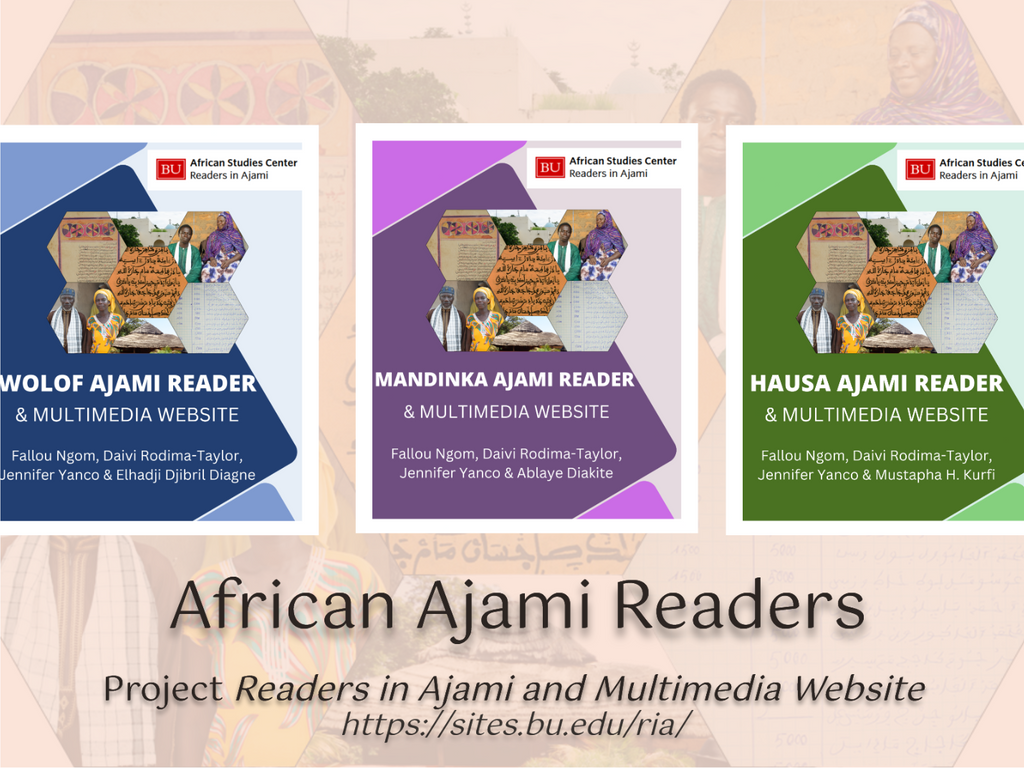Ajami Readers in Wolof, Mandinka, and Hausa
The Boston University Readers in Ajami (RIA) project has developed three African Ajami Readers – of over 600 pages of instructional materials. The Wolof, Mandinka, and Hausa Ajami Readers offer a comprehensive multimedia learning experience in combination with the interactive project website.

The initiative aims to revive and promote African literatures written in Ajami, which refers to the use of Arabic script for non-Arabic languages. These resources help uncover the wealth of cultural, historical, and political knowledge embedded in Ajami texts, which for centuries have been a key medium of literacy in many African societies. Ajami writing, which has remained largely obscure to many due to limited access to its texts, serves as an important tool for grassroots education and communication.
The Ajami Readers and the multimedia website provide a comprehensive learning experience. They contain digitized texts, photo images, video interviews, and interactive exercises in Wolof, Mandinka, and Hausa Ajami, accompanied by Latin-script transcriptions and English translations. The Ajami Readers are authored by Fallou Ngom, Daivi Rodima-Taylor, Jennifer Yanco, Elhadji Diagne, Mustapha Kurfi, and Ablaye Diakite, with the assistance of numerous people including Ousmane Cisse, Gana Ndiaye, and Bala Saho. The Geddes Language Center digital humanities team, Alison Parker, Frank Antonelli, Shawn Provencal, and Mark Lewis, provided help with the multimedia website.
Funded by a grant from the U.S. Department of Education, the project provides a template for future resources in other African languages, offering a bridge between traditional local knowledge and modern educational tools.
More about our activities can be found in our recent news article.